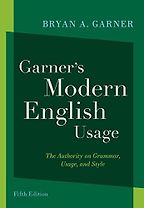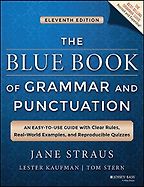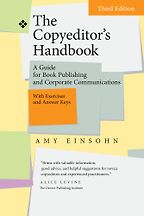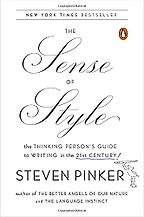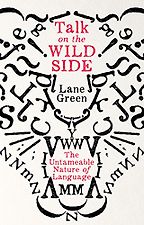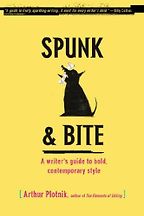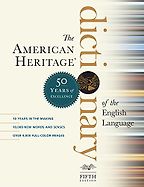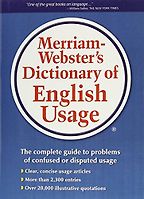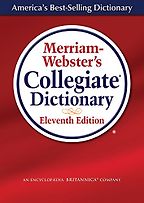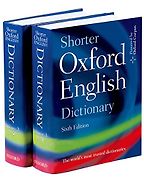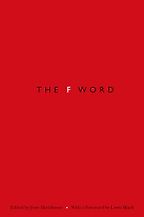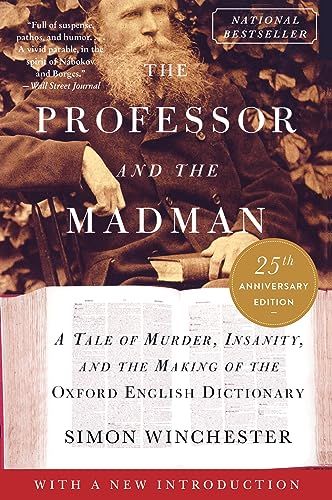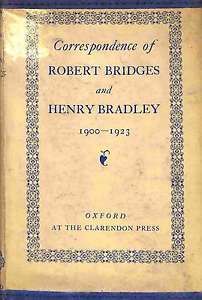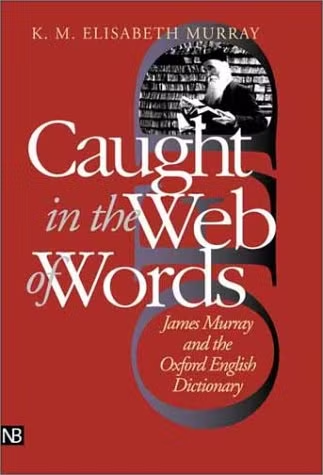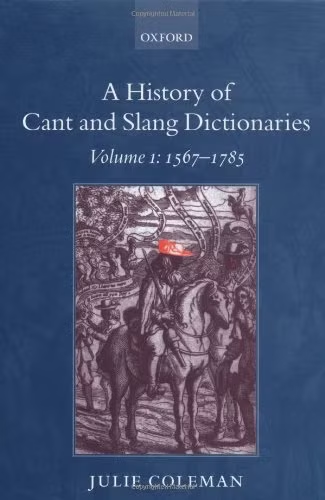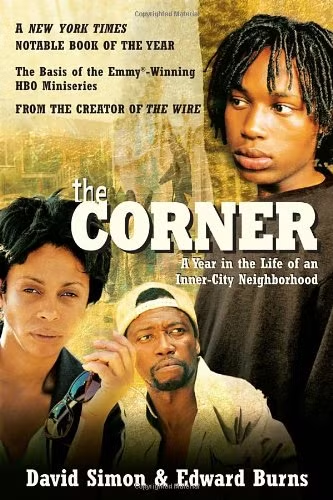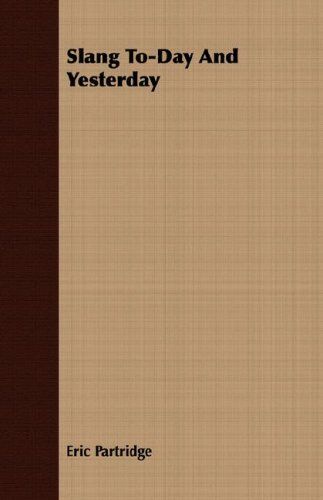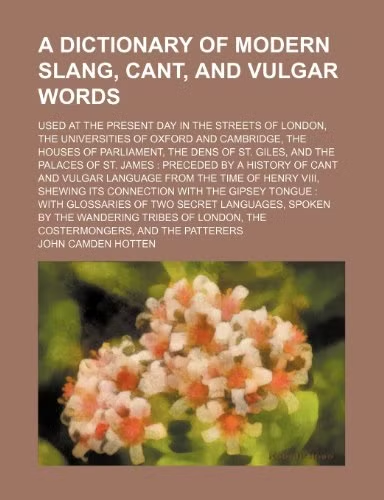English Grammar & Usage
Last updated: August 14, 2025
In the age of the internet and smartphones, we are all writers. Grammar books can help and there are also fascinating debates about what comprises 'correct' English and how it should be judged. If you're new to the topic and want practical tips on how to improve, we recommend our interview on the best books on grammar and punctuation by California-based writer and self-confessed 'grammar geek' Mark Nichol. Among his choices is Garner’s Modern English Usage by Bryan A. Garner, our most recommended book on the topic (it's also recommended by Lane Greene, who writes the Economist's Johnson language column).
If proper English is not your goal, we also have book recommendations on slang, defined as “counter-language” by lexicographer Jonathon Green, and swearing by journalist Melissa Mohr. Both recommend The F Word by Jesse Sheidlower. “Everybody should look at this and see how lexicography should be done...it’s an amazing piece of scholarship,” says Green.
On the subject of lexicography, we also have an interview about the Oxford English Dictionary, which started more than a century ago and tries to track the origin of all words in the English language.
(NB If you've already mastered the basics and just want to write more beautifully, we also have book lists/interviews on writing)
Garner's Modern English Usage (5th edition)
by Bryan A. Garner
Bryan Garner, the American equivalent of the Académie française, has updated his Garner's Modern English Usage. It's the 5th edition (the first was published in 1998), and it opens with an exchange at a car rental counter over the use of 'may' versus 'can.' He writes, "Experiences like that one give me hope: they show that some people still care about our language, however misplaced their concerns might occasionally be."
If you don't follow debates about language and grammar closely, the bottom line is this: language changes all the time, which makes it hard to say what's right or wrong. However, we do need some guidance. Garner's Modern English Usage is an attempt to grapple with this contradiction in a very practical way. And it is important: your ability to use language correctly shows in every text, every email, every job application or interview. So yes, you can use 'disinterested' to indicate a lack of interest, but its misuse will be noticed by some listeners, so why not avoid it? Garner goes through every usage you've ever wondered about (internet or Internet?) and many you didn't (dilemma—a choice between two unpleasant or difficult alternatives—should not be used by slipshod extension for plight or predicament), word by word.
“This book is good for beginners, but I also find it helpful for people who might consider themselves experts. It’s very clean, and it’s in a workbook format with many exercises in it. You read a short, simple lesson about adjectives and adverbs, or about when you use ‘that’ or ‘which’ in a sentence, and then you can practise with the exercises.” Read more...
The Best Grammar and Punctuation Books
Mark Nichol, Linguist
“If you’re going to have just one book on a desert island and you are a writer, I would say this is the book to have…every single person who writes in English, or at least American English, should be required to own this book and read it, and demonstrate that they’ve read it. It should be like getting a driver’s license. Before you can post a blog, before you can write an email, you need to have a writer’s license! And this is the test. This book is the test.” Read more...
The Best Grammar and Punctuation Books
Mark Nichol, Linguist
“Pinker is a dyed-in-the-wool descriptivist, a scientist of language and the mind whose early books debunked dud rules and gently mocked their proponents. But in this book he puts his stickler hat on (he was once the head of the AHD usage panel) and takes the only sensible position: yes, language does have legitimate rules, and here’s how to know which ones are legit. A great read.” Read more...
Grammar Books That Prove What They Preach
Lane Greene, Journalist
“I love language and languages but have always been quite confused by grammar. Why are some things allowed in English and others not? This book finally helped it all fall into place. You’ll also find out lots of interesting facts about words. Did you know that buxom used to mean obedient? Or that it’s OK to say ‘Can I?’ rather than ‘May I?'” Read more...
Editors’ Picks: Favourite Nonfiction of 2018
Sophie Roell, Journalist
“This book…is a rebuttal to Strunk & White…Strunk & White is widely respected as a very handy little resource for basic rules about writing clearly: be concise, don’t overload your sentences with adjectives and these kinds of prescriptions. Dictionaries are descriptive, but things like Garner’s Modern American Usage and Strunk & White are prescriptive: they say, ‘This is what you should do.’ I recognise the value of Strunk & White, but as I alluded to earlier, I’m all about being open to breaking rules. I really admire the author of Spunk & Bite for basically turning Strunk & White upside down and saying: yes, but no. If you want to load your sentences with adjectives, lots of great writers do that. OK, Hemingway doesn’t, but somebody else does. So if you want to sound like Hemingway, then no adjectives are allowed. If you want to sound like somebody else, then dump the wheelbarrow full of adjectives into every sentence, and go for it. I just appreciate that sense of ‘Know the rules, but then break them, if it works for you.'” Read more...
The Best Grammar and Punctuation Books
Mark Nichol, Linguist
“Yes, it’s a dictionary too, but also a grammar guide: disputed usages like whether ‘like’ can be a conjunction (‘Tastes good like a cigarette should’) are included. AHD takes a unique approach: a ‘Usage Panel’ with a hundred members, well-known editors, writers and language people (and, full disclosure, not so well-known me) vote on whether a usage is acceptable. This is a kind of conservative but also radically descriptive approach: ‘73% of our hand-picked experts say that this is OK; that’s up from 64% in our last edition.’ The names of the Usage Panel are printed in the frontmatter, so you know exactly whose advice you’re following.” Read more...
Grammar Books That Prove What They Preach
Lane Greene, Journalist
“This is the ultimate guide for the perplexed. You’ve heard different rulings on the split infinitive. Who(m!) to believe? MWDEU traces the history of every rule it describes, telling you which classic grammarians uphold the rule and which oppose it. It also goes to the written evidence itself, and then makes its own ruling with eminent good sense. Is this usage rare and widely condemned? Don’t do it. Is that so-called ‘rule’ a recent invention that has never been truly followed? It’ll tell you that too, in entertaining (even surprisingly cheeky) mini-essays on every controversy you can think of.” Read more...
Grammar Books That Prove What They Preach
Lane Greene, Journalist
“In the United States it is considered, among publishing companies, to be the dictionary of record. What I mean by that is that if you go into the offices of a publishing company, you are not going to see various dictionaries on people’s bookshelves as you take a tour. Everybody is just going to have Merriam-Webster’s. I chose it because I felt there needs to be a dictionary on this list of five books because dictionaries are fundamental. A lot of people criticise Merriam-Webster’s because it is not necessarily clear – just because a word is in the dictionary, it doesn’t mean you should use it. For example, Merriam-Webster’s includes the word ‘irregardless.’ You might come back to me and say: ‘Irregardless is not a word. It is a duplicative of regardless. It is a ridiculous word.’ But I will respond, ‘Yes, it is a word. I just used it.’ It doesn’t mean that it is a good word, but it exists. There are a lot of things in this world that we wish didn’t exist but they do, and ‘irregardless’ is one of them.” Read more...
The Best Grammar and Punctuation Books
Mark Nichol, Linguist
“OK, not for the budget-conscious. But this magnificent dictionary tells the history of every word it defines (including obsolete meanings), and cites classic written sources for those definitions. If you’re in a dispute and someone tells you ‘singular ‘they” is a modern, politically correct abomination, look it up. You’ll find citations going back to 1375 from one great author after another, and the point is yours. Figurative ‘literally’? Look it up. ‘Whose’ can’t be used with an inanimate object? This is a dictionary whose authority and evidence will prove otherwise.” Read more...
Grammar Books That Prove What They Preach
Lane Greene, Journalist
“This is a great one for showcasing the variety of swearing and all the circumstances you can use this one word. It starts with “absofuckinglutely” and ends with “zipless fuck,” and in the middle has “dumbfuck,” “frig,” “unfuckable”—so many great words. He’s done this excellent research, so you can see the dates when they were all first used, with quotes.” Read more...
Melissa Mohr, Linguist
“It’s just Mills and Boon really…but there are a couple of scenes in the book which are an evocation of the room where all the lexicography was being done.” Read more...
The best books on The Oxford English Dictionary
Peter Gilliver, Literary Scholar
“This is a really good introduction to the intellectual climate, what people thought about language.” Read more...
The best books on The Oxford English Dictionary
Peter Gilliver, Literary Scholar
“The quotations for the dictionary were sent in by members of the public. W.C. Minor was a member of the public, but he just happened to be a murderer who was banged up in Broadmoor. Dr Minor was clearly insane, and one part of his mind was unhinged. He was convinced that he was being spirited off to Constantinople every night. But another part of his mind was perfectly capable of reading books and writing out quotations for the dictionary in a useful, intellectual way, and he did that for many years. Because of the obsessive quality of Dr Minor’s work, the quotations he supplied were really useful, and it makes a great story.” Read more...
The best books on The Oxford English Dictionary
Peter Gilliver, Literary Scholar
“It tells the story of his life and it’s by the poet laureate Robert Bridges, who was a great friend.” Read more...
The best books on The Oxford English Dictionary
Peter Gilliver, Literary Scholar
“It’s been called one of the best biographies of the 20th century, and I think that’s fair enough.” Read more...
The best books on The Oxford English Dictionary
Peter Gilliver, Literary Scholar
“I’ve put Julie Coleman in because she does stand out in the relatively small circle of slang experts. I will be the first to acknowledge that they are not easy books. There is a great deal of statistical material but she has covered pretty much everything. I would be very surprised if there is something she hasn’t covered. It is very useful. The important thing about her is that she gives an unrivalled coverage of the dictionaries in the field of slang from the very first in 1531 through to the most recent. And it’s not just mainstream dictionaries. She offers information on enormous amounts of supporting slang – truckers’ slang, college slang and all that kind of thing. It’s a superb collection. If you want to see what has been done in the way of writing of slang lexicography for 500 years, then this is the place to go.” Read more...
Jonathon Green, Literary Scholar
The Corner
by David Simon and Edward Burns
This book shows how the drug trade recruits children. All the natural abilities of these kids is plugged into the drug trade
“Partridge begins by offering a discussion of the linguistic phenomenon that is slang. Then he puts forward his own opinion on the etymology of the word ‘slang,’ and suggests what constitutes a slang word – he gives 17 qualifications – as opposed to a colloquial or standard English one. He follows these theoretical chapters by a succession of chronological ones, in which he lays out both the major slang lexicographers from the 16th century onwards and the authors who up until the date of his writing had made the greatest contribution to the recording of slang vocabulary.” Read more...
Jonathon Green, Literary Scholar
A Dictionary of Modern Slang, Cant and Vulgar Words
by John Camden Hotten
No-one had ever written about slang in the way that Hotten did. His definition of slang is one of the best there is
Grammar Books That Prove What They Preach, recommended by Lane Greene
Most grammar books say ‘do this, and that’s that.’ But who says? How do they know? Real rules are grounded in the facts of actual standard usage. Here are five grammar books that show their work, telling you not only what to do but why, and how they know. Accept nothing less.
-

1
Caught in the Web of Words: James Murray and the Oxford English Dictionary
by K. M. Elisabeth Murray -

2
The Collected Papers of Henry Bradley
by Robert Bridges -

3
The Professor and the Madman: A Tale of Murder, Insanity, and the Making of the Oxford English Dictionary
by Simon Winchester -

4
The Study of Language in England, 1780-1860
by Hans Aarsleff -

5
The Scholar's Daughter
by Beatrice Harraden
The best books on The Oxford English Dictionary, recommended by Peter Gilliver
The best books on The Oxford English Dictionary, recommended by Peter Gilliver
It’s a dictionary that seeks to document any word that exists—or ever existed—in the English language and track its evolution over time. Lexicographer Peter Gilliver chooses books to help understand the enormous undertaking that is the Oxford English Dictionary.
-

1
Garner's Modern English Usage (5th edition)
by Bryan A. Garner -

2
Merriam-Webster's Collegiate Dictionary
by Merriam-Webster -

3
Spunk & Bite: A Writer's Guide to Bold, Contemporary Style
by Arthur Plotnik -

4
The Blue Book of Grammar and Punctuation
by Jane Straus -

5
The Copyeditor's Handbook: A Guide for Book Publishing and Corporate Communications
by Amy Einsohn
The Best Grammar and Punctuation Books, recommended by Mark Nichol
The Best Grammar and Punctuation Books, recommended by Mark Nichol
In the age of the internet, we are all writers. Correct grammar and punctuation are key to making a good impression. Grammar geek Mark Nichol, a writer at Daily Writing Tips, picks five of the best grammar and punctuation books, and tells us why bad grammar leads to anarchy.
The best books on Slang, recommended by Jonathon Green
It’s dirty, grubby and doubting. And us at our most real. The lexicographer takes us inside the world of “rough, truthful language” from rhyming slang and cant to the streets of Baltimore and an etymology of the f-word
